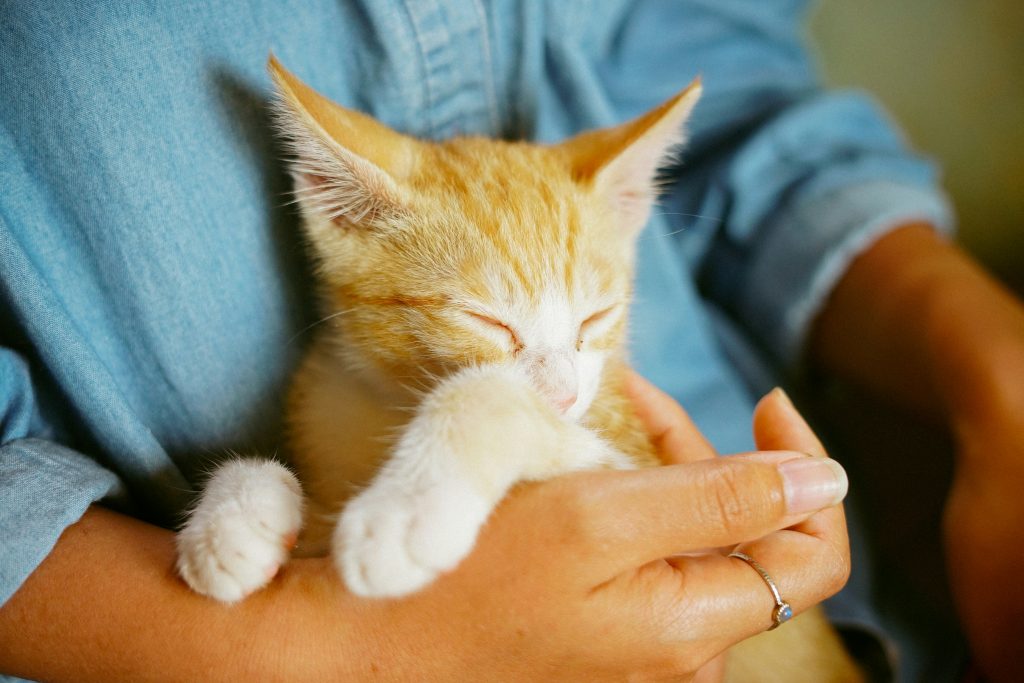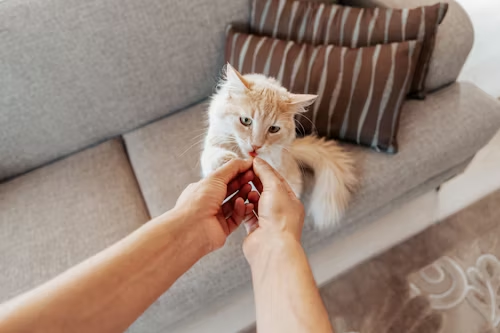Has your cat ever suddenly started ignoring you for no reason? You try to pet it, but it twists away. You call its name, but it just lies there like a furry little statue. Don’t panic—there’s a good chance you accidentally crossed one of its invisible boundaries.Today, let’s break down 6 things you should never do to your cat, no matter how close your bond is. Step on one of these “cat landmines,” and you might just find yourself emotionally blocked by your feline friend.
1. Forced Socializing
Cat parents, we get it—you’re dying to show off your adorable kitty to the world. When guests come over or you take your cat outside, do you often try to make your cat say hi to people?The truth is, for most cats, unfamiliar environments, loud noises, and groups of strangers trigger a stress response. Their adrenaline spikes and they go into fight-or-flight mode.
Tip: Respect your cat’s social boundaries. If your cat approaches guests on its own, great—praise and reward! But if it hides, don’t force it to interact. Unlike dogs, cats don’t need socialization to be emotionally healthy.
2. Forcing Hugs
What’s the point of having a cat if you can’t cuddle it, right? But forcibly hugging your cat compresses its body and restricts its whiskers—vital tools for sensing space—making it feel trapped and panicked. It may stiffen up or try to escape.
Tip: Always observe your cat’s body language. If their tail fluffs up or ears go flat, stop immediately. Instead, crouch down and offer your open hands—let your cat decide if it wants physical contact.

3. Shaving Their Fur
When summer hits and cat hair is everywhere, it’s tempting to grab the clippers and shave your cat clean. Your home may be hair-free, but your cat’s world just got turned upside down.Without fur, cats are more prone to skin issues like dermatitis, easier targets for parasites, and yes—they do feel embarrassed. Plus, grooming is their way of self-soothing. Take that away, and you’re adding stress.
Tip: Instead of shaving, turn on the AC, offer cooling mats, or brush regularly. Feed cat food rich in Omega-3s to reduce shedding naturally.
4. Scolding or Intimidating
If your cat knocks over a vase or jumps on the dinner table, shouting or hitting may feel like a quick fix—but it damages your bond. Cats don’t understand punishment like humans. They don’t know “right” from “wrong”; they only associate actions with safety or fear.
Tip: Use gentle redirection. Give your cat toys to play with, feed them on a routine, and reward good behavior. Focus on guidance, not discipline.
5. Overbathing
Saw your cat rolling on the floor or noticed a strange smell, and now you want to bathe it? Hold up!Frequent bathing strips away the natural oils from a cat’s skin, leading to dryness, itching, and over-grooming. Many cats are also terrified of water and hairdryers, turning bath time into a traumatic event.
Tip: Cats are naturally clean and rarely need baths. Once every 2–3 months is enough. For dirty spots, gently wipe with a damp cloth.

6. Neglecting Nail Trimming
Got a scratching post? Great—but that’s not enough. Without regular nail trims, claws can overgrow and curl into their paw pads, causing pain. Long claws also get caught on fabric and can make jumping slippery or dangerous.
Tip: Trim your cat’s nails every two weeks using cat-specific clippers. Avoid cutting the pink quick. After trimming, reward your cat with a treat—it turns the whole experience into a positive one.

